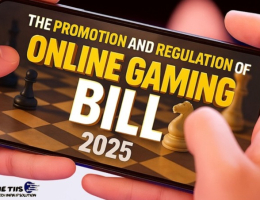
Online Gambling in the United States in 2022
Online Gambling in the United States in 2022
- By --
- Wednesday, 09 Feb, 2022
Online Gambling in the United States
The Online Gambling in the United States sector is expanding rapidly. According to the Research and Markets report, the industry should reach $92.9 billion by 2023, growing at a compound annual growth rate of 11.6%. Estimates suggest that growing technologies such as IoT, blockchain and VR will propel the industry and North America will keep pace with the rest of the world, as its market should grow at 14.78% by 2025.
In the US, the 1961 Wire Act supervised the region for the longest time. It is a piece of legislation that aims to deal with anti-racketeering laws that were drafted before the existence of the Internet, and do not apply only to digital bets. Thus, in 2011, the Department of Justice (DOJ) allowed states to pass laws related to online gambling, allowing them to criminalize the activity. In 2018, the US Supreme Court struck down the Professional and Amateur Sports Protection Act of 1992, which placed a federal ban on sports betting. However, the DOJ recently concluded that the Wire Act of 1961 extended to online legal betting in the United States, limiting states to provide such services only to residents.
States That Allow Online Gambling
When it comes to gambling laws in the US, the activity is legal at the federal level. Meaning, each state has the right to regulate it both in the real world and in the digital realm. Gambling is a broad term, and it includes the ability to bet on things like sporting events, games of chance, and skill. Thus, the list of states that allow online gambling is long, and each one regulates each aspect differently. For example, currently, twenty states allow residents to bet on sporting events via the Internet, making it the most accessible form of online betting in the US. That said, most are not generous when it comes to casino and poker sites.
The Most Progressive States In The US When It Comes To Internet Betting Are:
New Jersey
The New Jersey Division of Gaming Enforcement regulates Internet betting in the Garden State, and is a trailblazer in the region. In 2013, New Jersey became the first state in the United States to allow an online casino. Today there are dozens of platforms that bring in millions in monthly tax revenue. It also allows people to place bets on the Internet on poker, sports, fantasy sports, lotteries and horse racing.
Pennsylvania
The Pennsylvania Gaming Control Board oversees this pastime in Keystone State, and it allows all forms of betting that New Jersey also allows. Online poker has been very successful in Pennsylvania. The market there is firing on all cylinders thanks to the presence of PokerStars.
Michigan
Speaking of poker, Michigan was the fifth US state to legalize the card game in its digital form. In December of 2019, Michigan Governor Gretchen Whitmer signed the Legalized Internet Gaming Act, which positioned the Great Lakes state to become a serious player in the online slots and mobile sports betting sector. It also allows betting on fantasy sports. The Michigan Gaming Control Board is responsible for their regulation, and it grants licenses.
Delaware
Blue Hen State allows all forms of internet betting except sports betting. Currently, there is no mobile betting on the game in Delaware, even though there is in-person betting. Delaware was the second state in the US to make legal bets on sports, and the first to do so after a landmark Supreme Court ruling in 2018. The Delaware Division of Gaming Enforcement regulates all gaming activities.
West Virginia
The West Virginia Lottery Interactive Wagering Act 2019 created the framework to allow companies to provide interactive betting on slots, table games, poker, lottery games and sports. Since the opinion of the Attorney General of West Virginia in 2016, daily fantasy sports have actually become legal. The West Virginia Lottery is the state's regulator.
Nevada
This may come as a shock to many, but while Nevada state laws allow land-based casinos, they do not regulate their Internet counterparts. Cannot play Nevadan online slots. They have to go to a physical location to spin the reels on a real-life machine. However, the Nevada Gaming Control Board regulates betting on sports, poker and horse racing.
States that are in the process of legalization
So far, six states have recently passed bills to legalize sports betting, and twenty-two have introduced legislation hoping to do so. Once the activity in these areas is controlled, there is no doubt that placing bets via mobile phones or desktop computers will be an option.
That said, when it comes to games of chance and skill, legalization across the country is progressing at a slow pace. Traditional gaming venues such as commercial or tribal casinos, race tracks, and card rooms also do not allow interactive betting in many areas across the United States. The list of areas where politicians and lobby groups are pushing for change and where policy change may be imminent includes:
- california
- Connecticut
- Indiana
- Illinois
- Massachusetts
- New York
- Nevada
It is interesting to note that the initiative to legalize online lotteries gave rise to other forms of Internet betting. When lottery officials in New York and Illinois sought the DOJ's opinion on the digital sale of lottery tickets in 2009, the 2011 response clarified that it interpreted the 1961 Wire Act to apply only to those betting on sporting events or competitions. Had it. it happens. Thus, it left the door open for the legalization of poker and casino platforms.
States That Don't Allow Online Gambling
Gambling is legal in some form in 48 states across the country. Two holdouts that ban it outright are Utah and Hawaii. Utah has a large Mormon population, a deeply religious community. It is natural that the personal beliefs of most residents influence local regulations. The weather is similar in Hawaii. There, the religious aspect is not so much in the Aloha Islands, but most residents are of the opinion that it will affect family ties and the atmosphere. Other states that track activity and have no interest in broadening their legal framework to allow betting on land-based or digital establishments include Wisconsin and Idaho.
The full list of states currently providing limited online gambling offers is as follows: Alabama, Alaska, American Samoa, Arizona, Arkansas, Colorado, Connecticut, Washington, Florida, Georgia, Hawaii, Idaho, Kansas, Kentucky, Louisiana, Maine, Maryland, Massachusetts, Minnesota, Mississippi, Missouri, Montana, Nebraska, New Mexico, New York, North Dakota, Ohio, Oklahoma, Oregon, South Carolina, South Dakota, Tennessee, Texas, Utah, Vermont, Virginia, Wisconsin and Wyoming.
What About Online Casinos?
There appears to be less regulation of sites providing games of opportunity on totem polls in most regions, as they are more concerned about passing bills that allow companies to accept bets on a sporting event. The apathetic behavior of politicians in specific states regarding the legalization of online casinos is shocking as such platforms generate over $80 million in monthly revenue in New Jersey. Since the Garden State made these sites legal in 2013, there has been a huge influx of tax revenue, and the figures are increasing year after year.
The states whose residents have taken initiatives aimed at changing legislators' stances regarding iGaming are Arizona, Georgia, Missouri and South Dakota. Many believe that New York may soon be making a change given what is happening across the Garden State border.
Finish work
The ethics of gambling are the subject of controversy and the biggest obstacle in the way of comprehensive online United States gambling regulation. Some see it as a hobby or recreational activity, others see it as a threat to the social and economic well-being of the people. However, most sites promote fair and responsible gaming, allowing players to set loss-limits and exclude themselves. The laws ensure that reputed bodies regulate platforms providing such services, address any malpractice, thereby making the effort safe.
These platforms also create jobs and provide tax revenue. Even though a state has no regulations regarding digital gaming, there is nothing stopping residents from playing on off-shore sites, and many do. Thus, it would be wise for politicians across the country to pass laws that would prevent potential tax revenue streams from spreading outside US borders. While internet sports-betting should be legal in most regions in the coming years, we can't say the same with much confidence for casinos and poker sites.
Read More - http://thetiis.com/Online-Betting-ID
Facebook – https://www.facebook.com/Online-Betting-Id-TIIS-104841985403800/
Instagram - https://www.instagram.com/thetiisbettingtips/
Youtube - https://www.youtube.com/channel/UCFimmDDB8iBNXpUUFRIuEIA
for more information please fill the form
*Alert - This game involves element of financial risk and may be addictive. Please play Responsibly at your own risk. This is only for educational purposes. This Website is totally for those people where betting is legal... We are just provide tips on our personal knowledge and experience. We're working within the guidelines.








